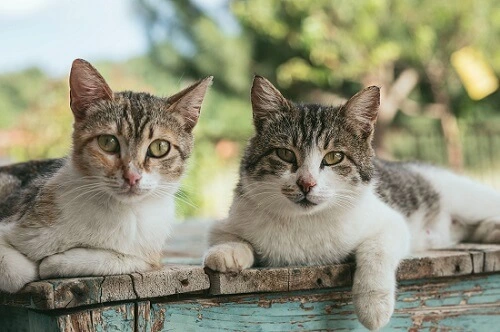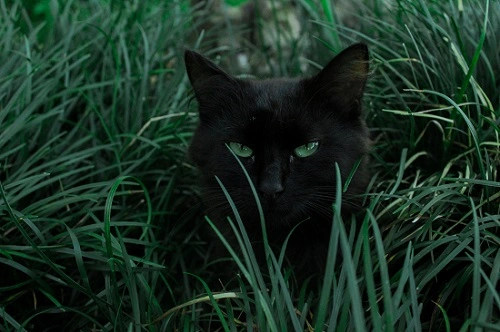Can Cats Be Bipolar? As a cat owner, you may notice your feline companion switch between affectionate and standoffish moods. But do cats actually experience the extreme highs and lows associated with bipolar disorder in humans? Getting to the root of your cat’s unusual behavior is key to helping them live a content, stable life.
Can Cats Be Bipolar?
Does your cat shift between extremely affectionate and withdrawn moods? Can Cats Be Bipolar? Exploring ups and downs in your kitty’s behavior.
This article helps in understanding the behavioral changes in cats. However, there is no significant proof that cats can be bipolar or related to human behaviors.
What is Bipolar Disorder in Humans?
Also known as manic-depressive illness, bipolar disorder causes severe shifts in energy, mood, and ability to function. The condition includes:
- Manic episodes of highly energetic, euphoric or irritated moods with poor decision-making.
- Depressive episodes of extreme sadness, low energy, lack of interest in normal activities.
- Periods of stable mood between episodes.
- Additional symptoms can include sleep disruption, delusions, hypersexuality and reckless behavior during manic phases. Thoughts of death and suicide may occur during depression.
- Bipolar disorder has a genetic component and involves brain structure differences visible on scans. With proper medication and therapy, many patients achieve stable, fulfilling lives.
Do Cats Experience Similar Mood Shifts?
Cats do not suffer from psychiatric illnesses, so bipolar disorder in cats is not observed occasionally. Their brains differ too much from the human brain in structure and neurochemistry. However, cats can experience mood or behavior changes resembling bipolar symptoms. Common causes include:
Stress: Cats already prone to stress may act especially erratic in fearful situations like visits to the vet or changes in routine. Their stressed “manic” behavior subsides once the trigger is removed.
Lack of Routine: With inconsistent feeding, play, and sleep schedules, cats can become restless and demanding. Establishing a routine can restore calm.
Lack of Mental Stimulation: Bored, under-stimulated cats may behave erratically to seek attention and activity. Providing puzzles, toys and play can redirect them into more positive behaviors.
Declawing: This painful procedure alters cats’ behavior long-term, creating anxiety, aggression, and abnormal litter box habits. Moodiness and lashing out results.
Pain or Sickness: Physical health issues, like dental disease or urinary tract infections, cause irritability. Treating the condition resolves the behavior.
Age-Related Cognitive Decline: Senior cats experiencing feline cognitive dysfunction show unpredictable vocalizing, activity changes, and anxiety. Medication and enriched environments help.

While concerning, these so-called bipolar disorder in cats can be managed with compassionate care. Let’s explore some solutions so that a logical solution is achieved to our query on can cats be bipolar?
Creating Consistent Routines for Your Cat
The number one way to reduce chaotic behavior in cats is to implement a predictable daily schedule. Cats thrive when they know when to expect feeding, playtime, grooming, and human interaction. Build a routine around your cat’s natural sleep/wake cycles.
Feeding wet food on a schedule also stabilizes blood sugar levels. Stick firmly to this routine, even on weekends, to maintain your cat’s equilibrium.
Addressing Any Underlying Medical Issues
Schedule a full veterinary checkup including bloodwork and urinalysis for any cat exhibiting sudden behavior changes Illnesses like hyperthyroidism, kidney disease, or painful arthritis can create irritability misconstrued that my leads towards, can cats be bipolar?-like mood swings.
Diagnosing and treating medical conditions improves quality of life. Your vet can also prescribe anti-anxiety medication if needed to take the edge off while root causes are addressed.
Environmental Enrichment is Key
An intellectually and physically stimulating home environment is crucial for a stable, content cat. Place perches by sunny windows for birdwatching. Provide puzzle feeders and hiding treats to spark your cat’s natural hunting instincts.
Set up tall cat trees and shelving so they can climb and patrol. Rotate new toys frequently to fight boredom. Schedule interactive play sessions with wand toys. With proper enrichment, your cat will be too happily occupied to act out!
Use Calming Supplements and Pheromones
Products formulated with L-theanine, chamomile, tryptophan, and CBD can curb moodiness and nervous behavior in stressed cats when used consistently. Feliway diffusers mimic cat facial pheromones and promote calmness.

These supplements don’t sedate your cat, but simply ease anxiety and irritability. They are very safe long-term solutions.
Should You Consider Rehoming Your Cat?
Rehoming a cat with unstable, unpredictable behavior can be a last resort if you cannot provide the right environment to manage their needs. Working with a rescue organization ensures they get properly matched to an experienced adopter prepared to address their challenges. While emotionally difficult, rehoming is sometimes the kindest option.
However, don’t just assume a cat with supposed bipolar behavior is unmanageable. With patience and detective work, you can uncover the reasons behind their concerning conduct. Whether physical or mental, these issues are treatable and reversible. Your cat just needs compassion and management from a committed owner.
When to Seek Professional Help for Your Cat
If your cat’s extreme behavioral changes persist despite your best efforts at home, don’t hesitate to seek expert intervention. Consult both your vet and an experienced cat behaviorist. Certified specialists can observe your cat’s actions and interactions to design an effective behavior modification plan.
These specialists are also helpful in monitoring any bipolar disorder in cats. With customized training and environmental adaptation, treatment of any bipolar disorder in cats is very successful.
My Cat Acts Bipolar – Should I Give Up On Them?
Many of us may often confused about can cats be bipolar? Cats with over-the-top mood swings definitely demand extra work. But abandoning a pet at the first signs of trouble breaks the trust between human and animal. Your cat’s acting out is a cry for help. So before giving up entirely:
- Have your vet rule out pain or illness as a cause.
- Explore behavior modification training.
- Commit to consistent routines and enrichment.
- Use calming supplements and medication if needed.
- Ensure you have realistic expectations of your cat’s natural personality – not all cats enjoy constant cuddling and interaction
With unconditional love and proper care, your moody feline can learn to channel their inner wild cat through healthy outlets, leaving the bipolar-like behavior behind.
Don’t let the cycles of perceived mania and depression deter you – work with your cat cooperatively and results will come. Bipolar disorder in cats can be treated with special care by pet owners.


Leave a Reply